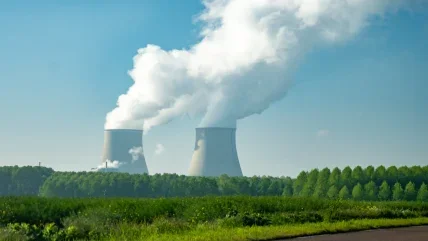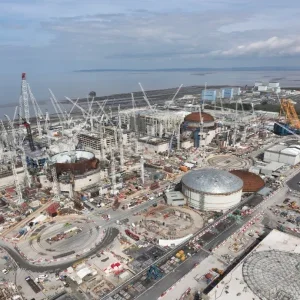
The European Commission (EC) has outlined that expanding nuclear energy capacity in member countries will require an investment of around €241bn until 2050. This investment encompasses both the extension of existing nuclear reactors’ lifespans and the construction of new large-scale reactors.
Additional funding will be needed for the development of Small Modular Reactors (SMRs), Advanced Modular Reactors (AMRs), microreactors, and future fusion technologies.
The findings are part of the draft analysis for the eighth nuclear illustrative programme (PINC).
EU’s nuclear power capacity is expected to increase to 109GW by 2050, up from the current 98GW. The draft analysis specifies that €205bn is needed for building new nuclear power plants, while €36bn is required for extending the life of existing reactors, with financing expected from both public and private sectors.
The draft document also reveals a new initiative by the Commission and the European Investment Bank, which will introduce a €500m pilot programme for power purchase agreements, making nuclear projects eligible.
Currently, nuclear energy accounts for approximately 24% of the EU’s electricity generation, Reuters reported.
In a statement, EC further stressed on the importance of maintaining high standards of nuclear safety, security, and safeguards, alongside the safe management of radioactive waste. It called for enhanced infrastructure for waste disposal and the effective decommissioning of nuclear facilities.
It also underscored the need for cooperation between national regulatory authorities to accelerate licensing processes. International collaboration with reliable partners is also deemed essential for ensuring a stable and diversified fuel supply, avoiding dependencies.
The executive body of the EU also highlighted the importance of upskilling the workforce, attracting new talent, and encouraging start-ups.
The PINC document will be discussed with member states at the Energy Council meeting set for today, in Luxembourg.
Currently, 12 out of the EU’s 27 member countries operate nuclear reactors, with France having the largest fleet.
European Commissioner for Energy and Housing Dan Jørgensen said: “To truly deliver the clean energy transition, we need all zero- and low-carbon energy solutions. Nuclear energy has a role to play in building a resilient and cleaner energy system.
“Ensuring the necessary framework conditions will allow the EU to keep its industrial leadership in this sector while also upholding the highest safety standards and responsible management of radioactive waste.”






